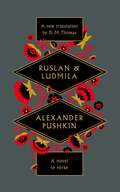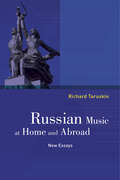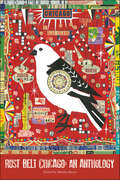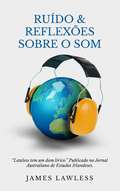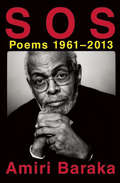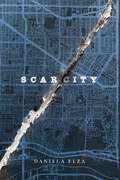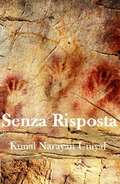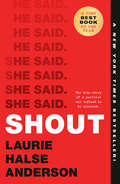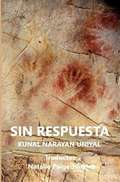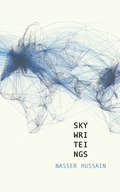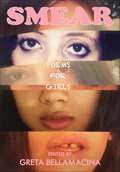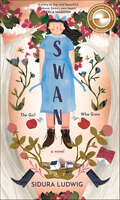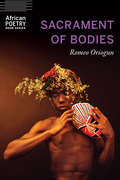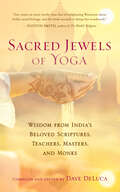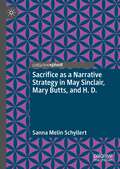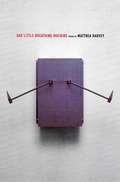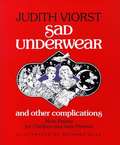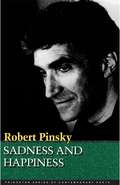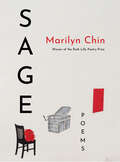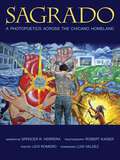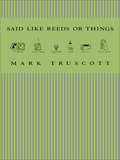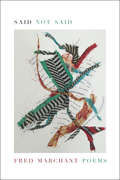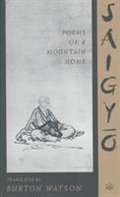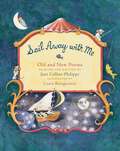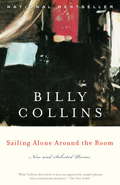- Table View
- List View
Ruslan and Ludmila
by D. M. ThomasAlexander Pushkin’s epic magic-realist tale is brought vividly to life in this superb translation by D. M. Thomas. Drawing on the Russian folklore of Pushkin’s childhood, the poem recounts the abduction of Princess Ludmila by the evil wizard Chernomor and the attempt by the brave knight Ruslan to rescue his bride. Ruslan must embark on a perilous quest, encountering an intriguing cast of characters – including a hermit, a witch and a pugnacious floating head – before he can be reunited with his love.Ruslan and Ludmila is a vibrantly colourful blend of traditional chivalry, outrageous humour and exciting escapades: a gorgeous display of the poet's astonishing imagination.
Russian Music at Home and Abroad: New Essays
by Richard TaruskinThis new collection views Russian music through the Greek triad of "the Good, the True, and the Beautiful" to investigate how the idea of "nation" embeds itself in the public discourse about music and other arts with results at times invigorating, at times corrupting. In our divided, post–Cold War, and now post–9/11 world, Russian music, formerly a quiet corner on the margins of musicology, has become a site of noisy contention. Richard Taruskin assesses the political and cultural stakes that attach to it in the era of Pussy Riot and renewed international tensions, before turning to individual cases from the nineteenth century to the present. Much of the volume is devoted to the resolutely cosmopolitan but inveterately Russian Igor Stravinsky, one of the major forces in the music of the twentieth century and subject of particular interest to composers and music theorists all over the world. Taruskin here revisits him for the first time since the 1990s, when everything changed for Russia and its cultural products. Other essays are devoted to the cultural and social policies of the Soviet Union and their effect on the music produced there as those policies swung away from Communist internationalism to traditional Russian nationalism; to the musicians of the Russian postrevolutionary diaspora; and to the tension between the compelling artistic quality of works such as Stravinsky’s Sacre du Printemps or Prokofieff’s Zdravitsa and the antihumanistic or totalitarian messages they convey. Russian Music at Home and Abroad addresses these concerns in a personal and critical way, characteristically demonstrating Taruskin’s authority and ability to bring living history out of the shadows.
Rust Belt Chicago: An Anthology (Belt City Anthologies)
by Martha Bayne&“A lively grab bag of essays, fiction and poetry that reads at times like a who&’s who of contemporary Chicago writers/residents&”(Chicago Tribune). Chicago is a city built on meat, railroads, and steel, on opportunity and exploitation. But its identity has long involved so much more than manufacturing. Today, the city continues to lure new residents from around the world, and from across a region rocked by recession and deindustrialization.Rust Belt Chicago collects essays, fiction, and poetry from more than fifty writers who speak directly to the concerns the city shares with the Midwest at large, and the elements that set it apart. With contributions from writers like Aleksandar Hemon, Kathleen Rooney, and Zoe Zolbrod, here you&’ll find stories about: Buying Bread on Devon Street The Cantinas of Pilsen Bike commutes through the North Side Adventures on the El. Writing with affection, frustration, anger, and joy, the writers in this collection capture all the harmony and dissonance that define one cacophonous place.
Ruído & Reflexões sobre o Som
by James Lawless Patrícia PintoUma pequena história e um longo poema que abordam o problema do ruído na sociedade. O que é o ruído? O que acontece quando ele permanece na sua cabeça? Na sua hilariante história, marcada com Reflexões piegas sobre o Ruído, o Sr. James Lawless revela-lhe, de uma forma típica bem humorada, alguns dos efeitos dos sons, na sociedade contemporânea, seguido pelo seu poema O Ruído, ascendentemente pesado, que explora o que a devastação descontrolada cacofónica provoca a indivíduais sensíveis.
S O S: Poems 1961–2013
by Amiri BarakaA New York Times Editors' Choice Fusing the personal and the political in high-voltage verse, Amiri Baraka whose long illumination of the black experience in America was called incandescent in some quarters and incendiary in others (New York Times) was one of the preeminent literary innovators of the past century. Selected by Paul Vangelisti, this volume comprises the fullest spectrum of Baraka's rousing, revolutionary poems, from his first collection to previously unpublished pieces composed during his final years. Throughout Baraka’s career as a prolific writer (also published as LeRoi Jones), he was vehemently outspoken against oppression of African American citizens, and he radically altered the discourse surrounding racial inequality. The environments and social values that inspired his poetics changed during the course of his life, a trajectory that can be traced in this retrospective spanning more than five decades of profoundly evolving subjects and techniques. Praised for its lyricism and introspection, his early poetry emerged from the Beat generation, while his later writing is marked by intensely rebellious fervor and subversive ideology. All along, his primary focus was on how to live and love in the present moment despite the enduring difficulties of human history.
SCAR/CITY (Hugh MacLennan Poetry Series)
by Daniela ElzaWhen the trees came down no one knew how / to interpret the light. homeless / it bounces off glass surfaces / pierces the wandering eye–These poems walk streets and take snapshots of the impact financialization of our homes has on our sense of community and belonging.Meandering through physical and philosophical materials – cement, memory, water, narrative, history, sand, light, concrete, and others’ voices – Daniela Elza documents this urgent moment. The reader winds through fragments amidst urban fragmentation. A sequence of triptych poems hearkens to silos, skyscrapers, and streets. Readers here have a choice: they can read across the page or down. She channels Syrian architect Marwa Al-Sabouni, who says, “The fabric of our cities is reflected in the fabric of our souls.” SCAR/CITY emerges from the Vancouver context to take on global issues of predatory finance and a market that mines homes for profit. It steps outside of binary conversations in favour of poetic reflection and interrogates a system that results in perceptible depravity and scarcity, which leaves us homeless, metaphorically and literally.French philosopher Gaston Bachelard says, “The space we love is unwilling to remain permanently enclosed … Space calls for action, and before action, the imagination is at work.” Amidst negotiations and advocacy in the fight for security of tenure and lease renewal, SCAR/CITY is a poetic call to action.
SENZA RISPOSTA
by CAPT KUNAL NARAYAN UNIYAL Roberto FellettiSenza Risposta. Mi rendo conto che sia un titolo alquanto insolito per un libro di poesie, fatta eccezione per qualche prosa. Prima di aggiungere qualsiasi altra cosa sul mio libro, vorrei dire qualcosa su di me e sui miei processi mentali. Nato e cresciuto a Dehradun (India settentrionale), ho sempre condiviso una stretta affinità con la natura. Ero solito amare, e lo sono ancora, osservare la natura e riflettere su quanto possa essere amorevole e crudele allo stesso tempo. Sono cresciuto con i miei pensieri e ho iniziato a navigare, un lavoro perfetto per me. La mia mente errabonda aveva così la possibilità di riflettere ulteriormente. Spesso me ne stavo tutto solo, sul ponte della mia nave, a sentire le vibrazioni dell'impetuoso oceano sotto di me, mentre il cielo cambiava colore e umore da un momento all'altro. Talvolta mi sono spaventato... sono rimasto sconcertato... ipnotizzato, contemporaneamente. Rispetto la natura in tutte le sue forme... la sua benevolenza... la sua furia... i suoi colori... la sua imperturbabilità... la sua imprevedibilità... tutto quanto! Poi osservo noi... intendo noi, esseri umani, così superiori, i più intelligenti... le creature viventi più progredite ma anche le più miserevoli di tutte, finché saremo preda del falso ego e dell'ignoranza. La natura ha le sue leggi, rigide, e non fa distinzioni. Siamo noi che creiamo quella che definiamo sfortuna. Cito Cassio dal Giulio Cesare: “La colpa, caro Bruto, non è delle stelle, ma nostra, se siamo sottomessi...”. Tutto ciò di cui abbiamo bisogno è scrutare dentro noi stessi e confidare nella divina provvidenza. Questo è il punto cruciale del mio libro “Senza risposta”. “Senza risposta” spiega come trovare le risposte che giacciono sepolte in fondo ai nostri cuori, ma che non riusciamo a trovare perché siamo accecati dalla nebbia dell'ego e dei desideri. “Senza risposta” si prefigge lo scopo di svelare quelle risposte. Le prose e
SHOUT: The True Story Of A Survivor Who Refused To Be Silenced
by Laurie Halse AndersonA searing poetic memoir and call to action from the bestselling and award-winning author of Speak, Laurie Halse Anderson! <P><P>Bestselling author Laurie Halse Anderson is known for the unflinching way she writes about, and advocates for, survivors of sexual assault. <P><P>Now, inspired by her fans and enraged by how little in our culture has changed since her groundbreaking novel Speak was first published twenty years ago, she has written a poetry memoir that is as vulnerable as it is rallying, as timely as it is timeless. <P><P>In free verse, Anderson shares reflections, rants, and calls to action woven between deeply personal stories from her life that she's never written about before. <P><P>Searing and soul-searching, this important memoir is a denouncement of our society's failures and a love letter to all the people with the courage to say #MeToo and #TimesUp, whether aloud, online, or only in their own hearts. Shout speaks truth to power in a loud, clear voice-- and once you hear it, it is impossible to ignore. <P><b>A New York Times Bestseller</b>
SIN RESPUESTA
by Natalie Kunal Narayan UniyalSin respuesta, sé que es un tipo bastante inusual de título para un libro de poemas, salvo algunos artículos. Antes de decir algo más sobre mi libro, me gustaría decir algo sobre mí y mi proceso de pensamiento. Nacido y criado en Dehradun, siempre he compartido una estrecha afinidad con la naturaleza. Solía amar, todavía lo hago, observando la naturaleza y reflexionando sobre cómo puede ser amorosa y cruel al mismo tiempo. Crecí con mis pensamientos y tomé la vela, un trabajo que me encajaba perfectamente. Mi mente errante ahora tenía más por qué reflexionar. A menudo he estado solo en la cubierta de mi barco, sintiendo las vibraciones de un océano subiendo por debajo y viendo el cielo cambiar sus colores y su estado de ánimo sin ninguna indicación. A veces me he asustado .... Desconcertado ... hipnotizado ... de una vez. Respeto la naturaleza en todos sus aspectos ... su benevolencia ... su furia ... sus colores ... su quietud ... su brusquedad ... su imprevisibilidad ... todo! Entonces yo nos miro ... me refiero a los seres humanos ... somos los más superiores ... los más inteligentes ... el más progresivo de todos los seres vivos y sin embargo, el más miserable de todas las criaturas vivas, siempre y cuando estamos envueltos en el falso ego y la ignorancia. La naturaleza tiene sus leyes fijadas y no discrimina. Somos nosotros quienes dibujamos lo que llamamos mala suerte. Cito a Cassius de Julius Ceaser "culpa, querido Brutus no está en nuestras estrellas, sino en nosotros mismos, que somos subordinados ..." Todo lo que se requiere es una visión de nosotros mismos y la fe en la providencia divina. Aquí está el quid de mi libro "sin respuesta". Sin respuesta se trata de encontrar las respuestas que estaban profundamente ocultas en el corazón de nuestros corazones, pero no lo descubrimos a medida que estamos cubiertos de niebla de ego y deseos. Sin respuesta se trata de revelar esas respuestas. No ficción novela poética cum se b
SKY WRI TEI NGS
by Nasser HussainThink Kierkegaard in a spacesuit, Kubrik in a Left Bank café.Like the neutrino observatory of its title, Midday at the Super-Kamiokande seeks "glimpses of the obscure" to carve out meaning, alternately a resistance to rationalism and its champion. It aims to tear through abstraction with the concrete, either catastrophic -- road accidents, nuclear explosions, floods, extinction, eviction, suicide -- or quotidian, finding threads of love, empathy, and belief within the fray. These poems delight in aphorism, paradox, puns, and wit, each stanza a closure that moves tangentially to the next, each poem more bricolage than narrative, more shuffle than playlist. These are poems with no middle. These are poems of beginnings, and of ends.
SMEAR: Poems for Girls
by Greta BellamacinaSMEAR: Poems For Girls presents a curated, all-female lineup of poets from different countries and addresses issues of trauma, survivorship, independence, and body positivity. As described on Dazed.com: "The poetry collection celebrating the imperfect, frank woman, SMEAR is chronicling the voices of women, unapologetically confronting self-image, body autonomy and our relationships with each other." The first North American edition of SMEAR will include an expanded selection of poems from international woman poets.
SWAN: The Girl Who Grew
by Sidura LudwigBefore she became the "The Giantess from Nova Scotia" and travelled the globe with notorious showman P. T. Barnum, Anna Swan was a young girl growing up near the rural town of Tatamagouche, desperately trying to fit into a world for which she was literally too big. In her debut middle grade novel-in-verse, award-winning author Sidura Ludwig imagines a pivotal period in Anna’s childhood, as she struggled to find acceptance in a community that saw her as other.When twelve-year-old, seven-foot-tall Anna’s family moves to her grandmother's farm in Central New Annan, she is forced to attend a new school, abandon the bedroom she once shared with her beloved sister, Maggie, and face bullies young and old. She worries she'll never stop growing, and dreams of dainty boots that fit and church pews that don't topple under her weight. Of a world that sees her as she sees herself: a gentle girl who loves to read books beneath the trees.When Anna discovers a solution that will help her stop growing and get her family out of debt, she agrees to exhibit herself as a curiosity in the big city of Halifax. But her giant heart will be tested as she tries to balance her devotion to her family with her desire for normalcy.A story of faith, family, and learning to love the body you're in, SWAN is a modern classic, an impeccably researched and brilliantly imagined story of a woman who has captivated the world for over two centuries. Features an author's note about the real Anna Swan chronicling Anna's later life, and the little that is known about why she grew so tall (almost 8 feet as an adult), as well as a brief history of the region where Anna grew up.
Sacrament of Bodies (African Poetry Book)
by Romeo OriogunIn this groundbreaking collection of poems, Sacrament of Bodies, Romeo Oriogun fearlessly interrogates how a queer man in Nigeria can heal in a society where everything is designed to prevent such restoration. With honesty, precision, tenderness of detail, and a light touch, Oriogun explores grief and how the body finds survival through migration.
Sacred Jewels of Yoga: Wisdom from India's Beloved Scriptures, Teachers, Masters, and Monks
by Dave DeLucaMillions of Americans today practice the asanas, or postures, of yoga, but many are unaware of the profound spiritual teachings at the heart of yoga’s ancient source scriptures. In this remarkable anthology, acclaimed Vedanta teacher Dave DeLuca presents 166 sacred passages from some of India’s most revered yoga scriptures — the Upanishads, the Bhagavad Gita, the Yoga Sutras, the Bhakti Sutras, the Astavakra Samhita, and the Srimad Bhagavatam — along with teachings by two of the most beloved yoga masters of the modern era, Sri Ramakrishna and Swami Vivekananda. This combination of ancient wisdom and modern commentary makes Sacred Jewels of Yoga an invaluable introduction to the scriptural treasures of ancient India and a priceless resource for inspiration, illumination, and guidance.
Sacrifice as a Narrative Strategy in May Sinclair, Mary Butts, and H. D.
by Sanna Melin SchyllertThis book explores sacrifice as a narrative theme and a stylistic strategy in works by May Sinclair, Mary Butts and H. D. It argues that the modernist experiment with pronoun use informs the treatment of acts of sacrifice in the texts, understood both as acts of self-renunciation and as ritual performance. It also suggests that sacrifice, if the conditions are right, can serve as the structure upon which a cohesive community might be built. The book offers in-depth analyses of the three authors and their works, deftly dissecting the modernist narrative experiment to show that it was by no means limited — it was a means by which to approach a wide range of stories and materials.
Sad Little Breathing Machine: Poems
by Matthea HarveyHarvey, whose debut collection was praised by the New Yorker as "intensely visual, mournfully comic and syntactically inventive," offers her second stunning collection. In "Sad Little Breathing Machine," Matthea Harvey explores the strange and intricate mechanics of human systems-of the body, of thought, of language itself. These are the engines, like poetry, that propel both our comprehension and misunderstanding. "If you're lucky," Harvey writes, "after a number of / revolutions, you'll / feel something catch. " "I pictured myself arriving at an amusement park, only none of the rides are familiar. I considered running away. I could break my neck or be catapulted into the sky. I might never be seen again. It's only poetry, I reminded myself, and climbed on board. I'm tossed and bucked and jabbed and lashed and flipped. I'm having a nearly insane amount of fun, and I don't want it to ever end. "--James Tate
Sad Underwear and Other Complications: More Poems for Children and Their Parents
by Judith ViorstKnock, knock. Who's there? Someone with sad underwear. Sad underwear? How can that be? When my best friend's mad at me, Everything is sad. Even my underwear. Only Judith Viorst, with the perfect pitch for the trials of childhood that has made her Alexander books modern classics, could create an ode to melancholy unmentionables. But the title poem is just one of the many pleasures in this collection, which bursts with wit and understanding -- and the occasional poignant note. Sure to delight readers of Shel Silverstein and Jack Prelutsky, as well as Viorst's own legions of fans, Sad Underwear is a perfect companion volume to her celebrated If I Were In Charge of the World.
Sadness and Happiness: Poems by Robert Pinsky (Princeton Series of Contemporary Poets #160)
by Robert PinskyFrom Sadness and Happiness: Poems by Robert Pinsky:CEREMONY FOR ANY BEGINNING Robert Pinsky ? Against weather, and the randomHarpies--mood, circumstance, the lawsOf biography, chance, physics--The unseasonable soul holds forth,Eager for form as a renownedPedant, the emperor's man of worth,Hereditary arbiter of manners. Soul, one's life is one's enemy.As the small children learn, what happensTakes over, and what you were goes away.They learn it in sardonic softComments of the weather, when it sharpensThe hard surfaces of daylight: lightWinds, vague in direction, like blades Lavishing their brilliant strokesAll over a wrecked house,The nude wallpaper and the bruteIntelligence of the torn pipes.Therefore when you marry or buildPray to be untrue to the plainDominance of your own weather, how it keeps Going even in the woods when notA soul is there, and how it impliesAlways that separate, coldSplendidness, uncouth and unkind--On chilly, unclouded mornings,Torrential sunlight and moist air,Leafage and solid bark breathing the mist.
Sage: Poems
by Marilyn ChinA rebellious, refined, provocative, and audacious volume from award-winning poet Marilyn Chin. In her galvanizing sixth collection of poems, Marilyn Chin once again turns moral outrage into unforgettable art. A rambunctious take on our contemporary condition, Sage shifts skillfully in tone and register from powerful poems on social justice and the pandemic to Daoist wild girl satire. A self-described "activist-subversive-radical-immigrant-feminist-transnational-Buddhist-neoclassical-nerd poet," Chin is always reinventing herself. In Sage, she sings fearless identity anthems, pulls farcical details from an old diary, and confronts the disturbing rise in violence against Asian Americans. Leaping between colloquialisms and vivid imagery, anger and humor, she merges the personal and political with singular, resilient spirit. Whether she is spinning tall tales, mixing Chinese poems with hip-hop rhymes, reinventing lovelorn folk songs with a new-world anxiety, or penning a raucous birthday poem, a heartrending elegy, or an "un-gratitude" prayer, Chin offers dazzling surprises at every turn.
Sagrado: A Photopoetics Across the Chicano Homeland (Querencias Series)
by Spencer R. Herrera Romero LeviUn lugar sagrado, a sacred place where two or more are gathered in the name of community, can be found almost anywhere and yet it is elusive: a charro arena behind a rock quarry, on the pilgrimage trail to Chimayó, a curandero&’s shrine in South Texas, or at a binational Mass along the border. Sagrado is neither a search for identity nor a quest for a homeland but an affirmation of an ever-evolving cultural landscape. Embedded at the heart of this remarkable book, in which prose, photographs, and poems complement each other, is a photopoetic journey across the Chicano Southwest.
Said Like Reeds or Things
by Mark TruscottWarning: this book may encourage a series of ungrammatical thoughts!Welcome to the poetic landscape of Mark Truscott, where less is more than you bargained for. Said Like Reeds or Things is a book of micropoetic and linguistic koans. With a quirky, off-centre sense of humour, these poems uncover a language that has malfunctioned only to find itself in the form of a gesture.Minimalist in form, these small gatherings of words, a.k.a. 'poems', seek strangeness in familiar language; their effect is harmonic dissonance within the mind - like an overturned toy box in your path to the television set, these poems are a fresh and amusing diversion from the everyday from which they are derived. Mysteriously entertaining and precise, these succinct, visual lyrics say as much about the world as they do about their own status as objects for reading, and they persist in the hilarity and contemplation of their own enigmatic possibilities.'Mark Truscott's Said Like Reeds or Things is the work of a mischievous conservationist with a shadow of Basho in the mix. It's sometimes snappy, sometimes calm, and always an exhilarating tease. This is the place where little pieces of perfection ride along a sublime horizon line.' - Lisa Jarnot
Said Not Said: Poems
by Fred Marchant“Fred Marchant teaches and awakens the soul.” —Maxine Hong Kingstonsomeone in Benghazi with a hose in one handuses his free one to wipe down the corpsewater flows over the body and downa tilted steel tray toward the drain what washes off washes off—“Below the Fold”In this important and formally inventive new poetry collection, Fred Marchant brings us into realms of the intractable and the unacceptable, those places where words seem to fail us and yet are all we have. In the process he affirms lyric poetry’s central role in the contemporary moral imagination. As the National Book Award winner David Ferry writes, “The poems in this beautiful new book by Fred Marchant are autobiographical, but, as is always the case with his poems, autobiographical of how he has witnessed, with faithfully exact and pitying observation, the sufferings in the lives of other people, for example the heartbreaking series of poems about the fatal mental suffering of his sister, and the poems about other peoples, in Vietnam, in the Middle East, written about with the noble generosity of feeling that has always characterized his work, here more impressively even than before.”Said Not Said is a poet’s taking stock of conscience, his country’s and his own, and of poetry’s capacity to speak to what matters most.
Saigyo: Poems Of A Mountain Home (Translations From The Asian Classics)
by Burton Watson Saigyô"Poems of a Mountain Home" contains translations of two hundred of Saigyo's poems. His poems are almost all written in the thirty-one syllable "tanka" form, the form most favored in Japanese court poetry. The translations follow the traditional topical arrangements used in Japanese editions of Saigyo's work, allowing the reader to appreciate the poet's celebration of each season of the year.
Sail Away with Me
by Jane Collins-PhilippeJane Collins-Philippe loves the sea – after all she has spent many years living on a sailboat – and she has collected verses old and new to share her understanding and affection. Some of the poems will be familiar, like Eugene Field&’s &“Wynken, Blynken and Nod.&” Others are from Collins-Philippe&’s own pen and are sure to become favorites. Who could resist a poem about a ship with a hippo for a captain and a giraffe named Joyce for a lookout?Laura Beingessner&’s charming art is the perfect complement to a collection that will delight children, whether they are old salts or landlubbers.A note from the author: OOPS! Credit for Baby&’s Boat on the very last page of my book should have gone to Ridley and Gaynor who penned it in 1898. I wouldn&’t want to take credit for something I didn&’t write. Besides, that would make me very old indeed!
Sailing Alone Around the Room: New and Selected Poems
by Billy CollinsSailing Alone Around the Room, by America's Poet Laureate, Billy Collins, contains both new poems and a generous gathering from his earlier collections The Apple That Astonished Paris, Questions About Angels, The Art of Drowning, and Picnic, Lightning. These poems show Collins at his best, performing the kinds of distinctive poetic maneuvers that have delighted and fascinated so many readers. They may begin in curiosity and end in grief; they may start with irony and end with lyric transformation; they may, and often do, begin with the everyday and end in the infinite. Possessed of a unique voice that is at once plain and melodic, Billy Collins has managed to enrich American poetry while greatly widening the circle of its audience.From the Trade Paperback edition.
